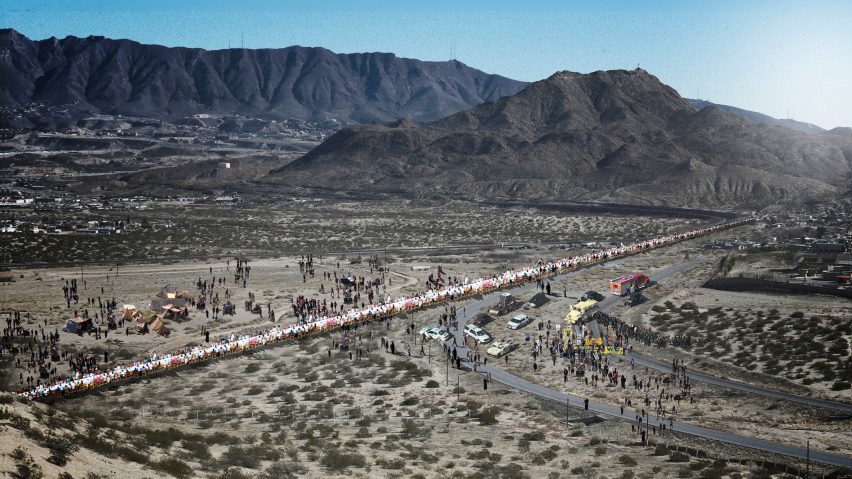
No-To-Scale imagines Trump's wall as a 1,954-mile-long dinner table
Malaysian design office No-To-Scale Studio has issued a satirical proposal to President Trump, suggesting a radical means of representing the US-Mexico border: a 1,954 mile-long dining table.
Citing "logistical, financial and nationality" limitations, the studio's design claims to be cost-effective in taking a domestic item and scaling it to massive proportions.
While the proposed slab of "continuous polished marble" may prove costly, diners will bring their own chairs in order to participate.
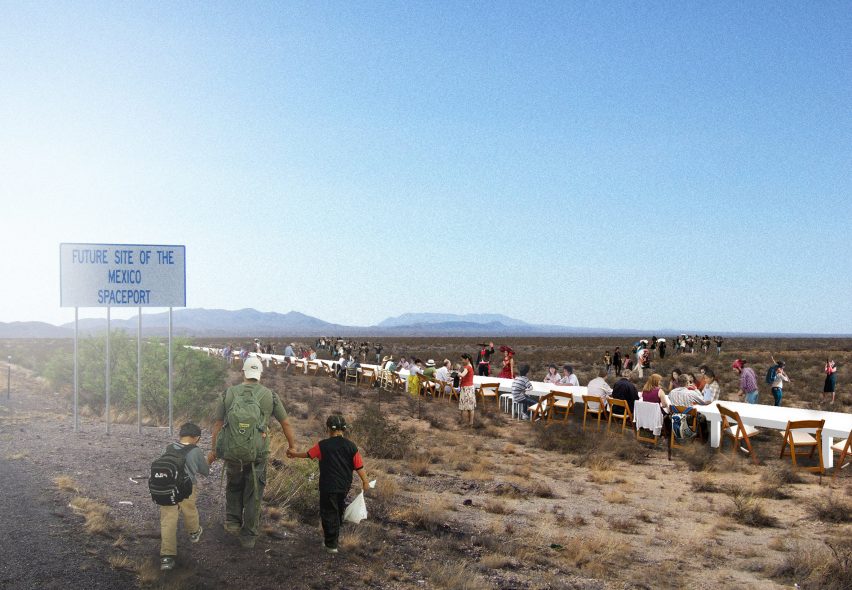
No-To-Scale Studio champions the idea of a border relying on the coming together of people in order to function, rather than acting as an alienating structure.
The designers are among many that have responded humorously to Trump's open call for submissions to build the controversial wall. But they claim theirs is different, as the others still glamorise "what is in essence, a massive partition".
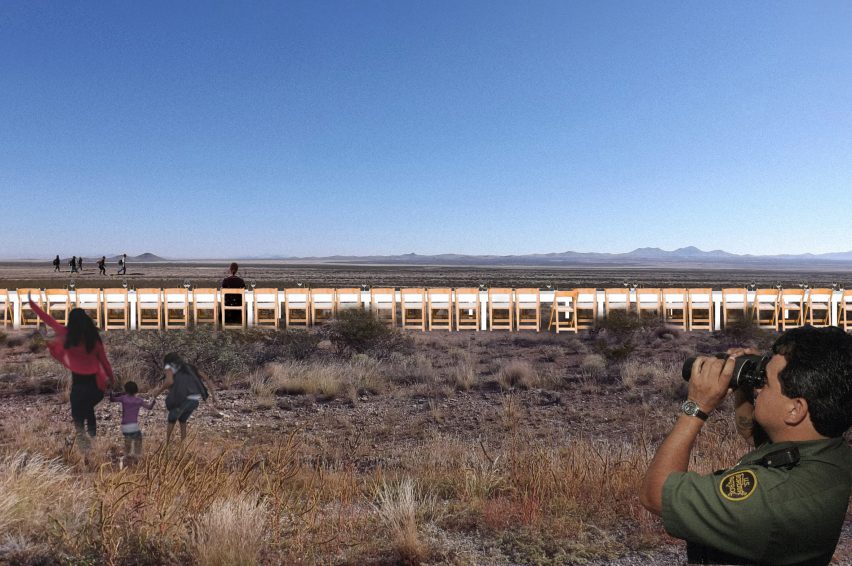
The dining table model seeks to divert from any physical form of division, instead celebrating Malaysian traditions of commensality.
"Take it from us," said the studio, "we've lived in a pseudo-democracy all our lives... and inevitably sometimes we have friction, but we always come together for food."
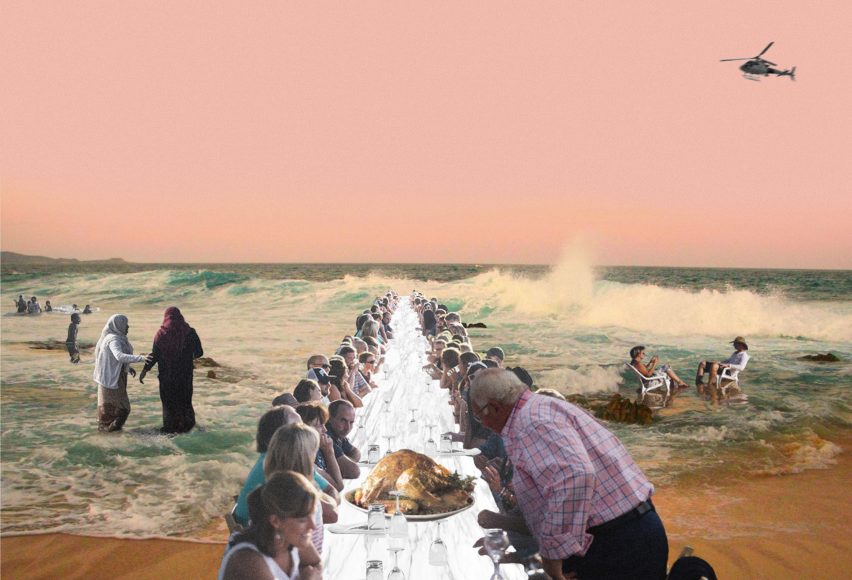
Visuals show absurdist photomontages of the stretch of table, lined with a white tablecloth, plunging into the sea. Guests share a huge Thanksgiving turkey, waves lapping at their feet.
"Imagine enjoying thanksgiving together without having to cross the border!" added the team.
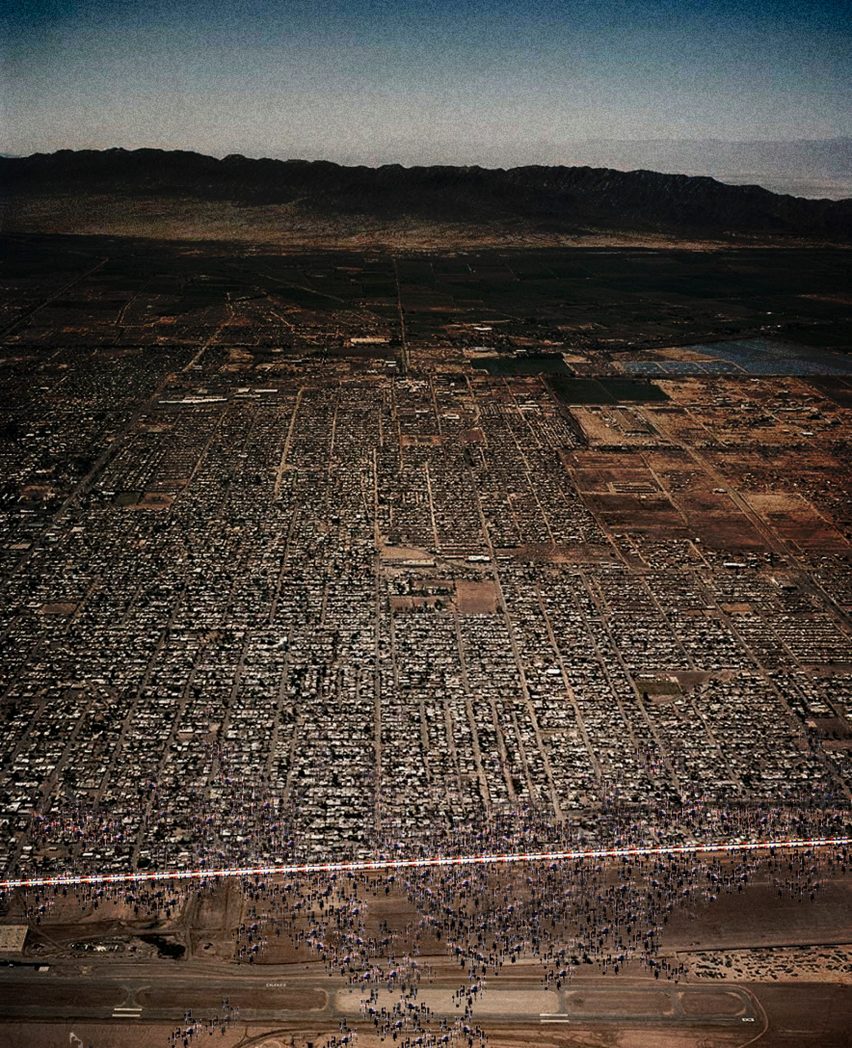
One visual depicts a sole diner seated at the table, while a group backpacks through the arid desert landscape under the watchful eye of a US Border Patrol agent.
The US Department of Homeland Security issued a notice on 6 March 2017 detailing its requirements for the proposed wall, calling for 30-foot-tall concrete barriers.
Plenty of satirical responses from designers had emerged before this, all aiming to highlight the threat Trump's administration poses to US immigration. IKEA released a spoof for a flat-pack kit, while Mexican firm Legorreta proposed a terminal and bridge.